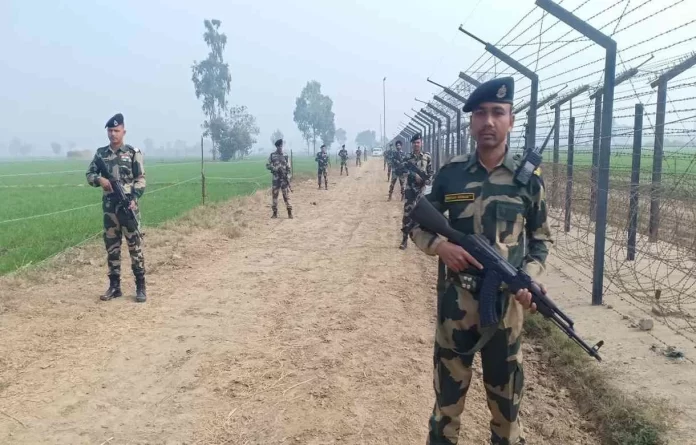The Centre’s decision to extend the BSF’s jurisdiction to a 50-km stretch from the International Border, as opposed to the earlier 15 km limit, does not take away the authority of Punjab Police, the Supreme Court orally observed on Friday.
A bench led by Chief Justice D Y Chandrachud, Justices J B Pardiwala and Manoj Mishra addressed the 2021 lawsuit of the Punjab government during the hearing. The top court noted that the issues for adjudication need to be settled. Furthermore, the Supreme Court also directed Solicitor General Tushar Mehta and lawyer Shadan Farasat representing the Punjab government to jointly decide on the issue.
The bench remarked that the parties shall exchange issues so that they can be settled before the next date of listing, mentioning that the Advocate General of Punjab can also participate in the meeting of the parties. The Chief Justice verbally observed that there were concurrent powers to be exercised by the BSF and the state police and that the power of investigation is not taken away from the Punjab Police.
The Solicitor General also stressed that the BSF has jurisdiction in all border states, with uniform jurisdiction of 50 km in all border states. Tushar Mehta also clarified that the impugned notification does not cover all cognizable offences, and the BSF has jurisdiction over specific passport offenses. Meanwhile, Shadan Farasat argued that the Centre’s decision takes away the authority of the police and other agencies in Punjab.
Notably, the Punjab government approached the Supreme Court in January 2021 challenging the Centre’s decision to expand the BSF’s jurisdiction. The government claimed that the extension of the BSF’s territorial jurisdiction encroaches upon the constitutional jurisdiction of the state. Earlier, the Union home ministry had issued a notification amending a July 2014 enabling provision for BSF personnel, extending their jurisdiction to a 50-km stretch from the international border in Punjab.
The lawsuit states that the unilateral declaration under the October 11, 2021 notification, without consulting the state or conducting any consultative process, violates the provisions of the Constitution. It further argues that the notification is ultra vires the Constitution as it defeats the purpose of the state’s authority to legislate on issues related to the maintenance of public order and internal peace.


